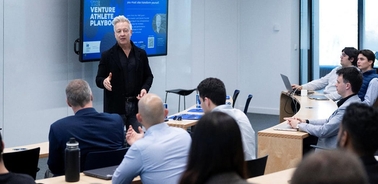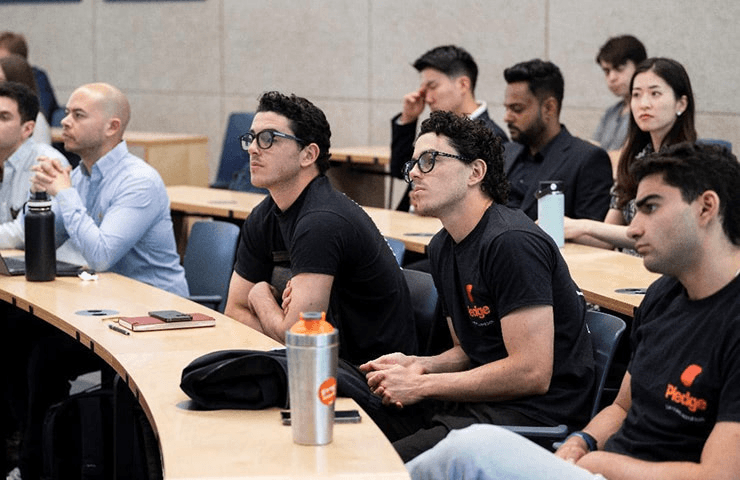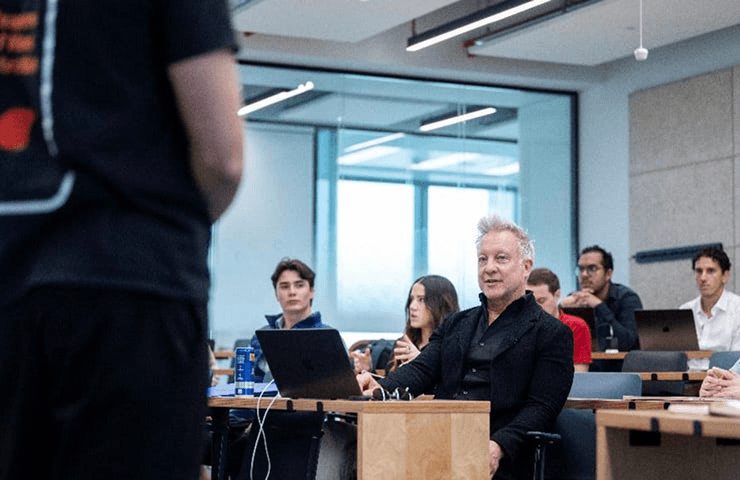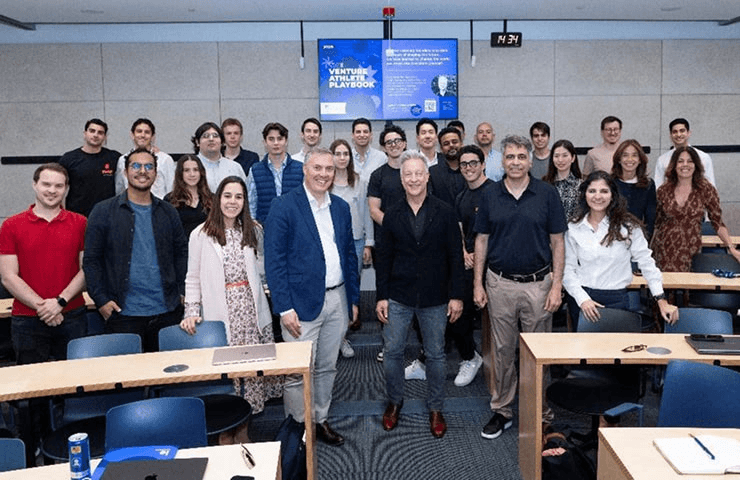Michael Baum on the Venture Athlete Mindset

Splunk and Yope founder on endurance, purpose, and what it really takes to build breakthrough companies.
When Michael Baum, founder and former CEO of Splunk, spoke at IE School of Science & Technology, the audience didn’t get a typical founder success story. After decades building companies, Baum has shifted his focus to developing future founders and advancing his own philosophy of purpose-driven entrepreneurship. With a $28.8 billion acquisition under his belt and a track record of solving deeply technical problems, he steered away from products and metrics, focusing instead on the importance of how to show up, stay grounded, and go the distance.
"We are venture athletes. Like elite athletes, we have to train, rest, manage energy, and lead with intent."
Michael Baum
His message came not from motivational slogans but from hard-earned experience. Founding a tech company, Baum argued, is an endurance sport—and the best founders prepare like pros.
At the heart of his talk was what he calls the Venture Athlete Playbook—a framework he developed and now shares with founders around the world. The Yope curriculum builds on these same principles: founder fitness (physical, mental, emotional), moonshot vision, and authentic leadership.
The Venture Athlete Playbook is built on three pillars:
- Optimize your personal state: Take care of your mind, body, and energy like a high-performance athlete.
- Maximize your venture success: Focus on clear, strategic execution—backed by deep customer insight and bold vision.
- Lead with purpose: Build authentic cultures and movements rooted in personal conviction, not hype.
The Venture Athlete Mindset
At the core of Baum’s talk was a challenge to the mythology surrounding startup hustle. Forget the badge of honor for surviving on four hours of sleep. Baum emphasized the power of recovery. “Get eight hours,” he said. “Sleep is not optional—it’s a performance enhancer.” For founders operating in high-stakes environments, the ability to think clearly, make decisions fast, and execute consistently depends on rest, not willpower.
He explained that venture athletes train not just physically but mentally. They manage their energy the way CFOs manage capital. They learn when to step away. Baum spoke of nature walks, breathwork, and mental reset tools that helped him stay sharp across multiple ventures. Over time, he discovered that well-being is not a luxury but a strategy.
The Venture Athlete Playbook, then, isn’t just metaphor—it’s tactical. It encourages students to see their health, mindset, and energy as core infrastructure, just as important as product-market fit or funding.
Big Vision, Small Start
Baum is known for helping launch Splunk, one of the most successful enterprise software companies of the last two decades. But the story of Splunk’s rise began with deep user research, not instant growth. “We talked to 62 customers before writing a line of code,” he recalled. That process revealed not only a sharper product direction, but a completely different business model; free download first, purchase later.
The result was a product that scaled organically. Downloads grew into paying customers, and those customers became advocates inside their organizations. By the time the company hired a sales team, they weren’t selling. They were supporting users already hooked on the product.
Baum sees this as the right path for any deep-tech founder: begin with research, get obsessed with the customer’s pain, and don’t be afraid to spend real time building the right thing before you scale. “We raised very little money,” he said, “because we didn’t need much. We had momentum from the start.” That scrappy, strategic start enabled them to reach profitability on schedule and go public at a multi-billion-dollar valuation.
Culture Starts on Day One
Another key insight from Baum’s experience was that culture isn’t something you write down later. It starts with how you show up as a founder. “Culture begins with the founding team’s behavior,” he said. “You can’t bolt it on with perks or ping-pong tables.” At Splunk, they built a culture of collaboration by leaving the office. Every month, the team would head to the Sierra Nevada for what they called “Splunking” trips - adventures that strengthened their bond and reinforced what mattered.
This kind of intentional culture-building, Baum argued, is essential. It attracts the right people and repels the wrong ones. When the founders live the values, others don’t need a handbook. They just follow the lead.
He also spoke about authenticity in leadership. The most magnetic founders, he said, are not imitating someone else’s style. They are grounded in their own strengths and convictions. That kind of leadership creates movements—not just teams—and it’s the key to scaling with soul.
Purpose Is the Real Multiplier
Purpose, for Baum, is the force that makes everything sustainable. Whether the mission is helping overwhelmed IT engineers or transforming enterprise software, a founder’s connection to their “why” can shape company identity, product design, and culture. At Splunk, the company’s early motto—“Take the SH out of IT”—was more than clever marketing. It reflected empathy for customers and made engineers feel seen.
Baum believes that purpose is not about grand statements. It’s about solving real problems for real people. He advised students to stop obsessing over “finding their passion” and instead seek purpose—something bigger than themselves, something others can rally around.
"When you have purpose, you don’t need to balance work and life. They harmonize."
Michael Baum
That purpose, he argued, acts as the connective tissue across roles, projects, and even life stages. And when it’s real, people follow. Not because they’re paid to, but because they want to be part of something that matters.
Instead of fixating on valuations, exits, or productivity hacks, Baum invited a room full of future founders to invest in themselves, their teams and their purpose. The Venture Athlete Playbook he outlined is a way of operating for those who want to build with endurance, integrity, and ambition. And that, Baum argues, takes the mindset of an athlete, not just a founder.


